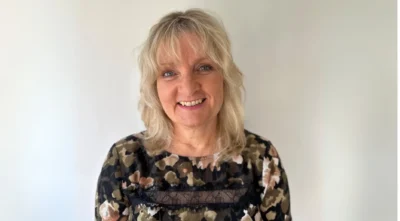Rochdale Borough Council helps children find their voice
By Erica Field and Emily Humphrey, Rochdale Borough Council
Teams at Rochdale Borough Council work together to support children with developmental speech and language delays. The borough provides continuity of support from early years into primary education and beyond using the WellComm Toolkit to screen children and get them the help they need.
Rochdale is the birthplace of the Co-operative Movement where in 1844 local pioneers came together to create a fairer way to do business for the good of their community. The cooperative spirit lives on in the borough of Rochdale where early years settings, schools, health visitors and agencies work closely together to improve children’s speech, language, and communication skills.
This close collaboration between different teams in the borough has never been more important. In some of Rochdale’s areas of high deprivation, around half of all children have mild to moderate speech, language, and communication needs (SLCN). And Covid restrictions have made a tough situation worse.
“When children have a language deficit it affects them in so many ways,” says Erica Field, Teaching and Learning Advisor for Key Stages 2 to 4 at Rochdale Borough Council. “General engagement, following instructions and speaking in sentences are all a challenge, and as children get older it has an impact on their literacy skills as well as their mental health.
“Giving children the tools to express themselves and be happy, healthy, successful adults is a moral imperative.”
Key outcomes
-
The gap in EYFS communication and language attainment between Rochdale Borough Council and the national average decreased from 6.8% in 2019 to 5.6% in 2022.
-
Rochdale is able to identify which children have speech and language difficulties at early years and primary school and offer support.
-
A borough-wide approach to speech and language screening means when children move between year groups and schools, they receive continuity of support.
Borough-wide approach
To tackle the issues, Rochdale Borough Council introduced a package of measures to support children with SLCN across its early years settings. As part of the package, Rochdale was using the WellComm Toolkit, a screening and intervention programme to identify children with signs of developmental language delay.
Recognising the need for a consistent approach to screening children as they move up the education ladder, the borough extended the support to primary schools in the locality.
Emily Humphrey, Teaching and Learning Advisor for EYFS and Key Stage 1 explains. “Headteachers were getting in touch with us asking for a tool to measure children’s speech and language at the end of Year 2. We were already using WellComm in early years settings and with health visitors, so it made sense to roll it out to primary schools to give schools accurate SLCN data for their pupils.
“With so many children being referred for speech and language support, continuity was very important,” says Emily.
“We ordered the WellComm packs to be delivered to schools, and arranged training for SENCos, assessment managers, EAL coordinators and education welfare officers. It was truly a borough-wide approach.”
Creating a common language
To get school leaders fully on-board with the WellComm screening, the council arranged for every school to receive training.
“The training was delivered by a speech and language therapist,” says Emily. “You don’t need to be an expert in the field to use the tool, but it’s important that schools keep to the wording of the questions and the timing of the activity, so the screen is completely accurate.
“Children are very good at masking their language difficulties. A child might be doing well in maths, is polite to adults and plays nicely with their friends but all this might hide the fact they have a language delay. WellComm helps us pick up those hidden communication needs.”
Consistent and accurate screening data helps when children move school, too. “When children start primary school, their WellComm data goes with them. Likewise, when children move from primary to secondary, their WellComm score is included alongside their teacher information and SATs outcomes.
“WellComm screening enables the interventions to continue as the child grows up.”
A shared understanding
The WellComm Toolkit is already having an impact at the Early Years Foundation Stage, where the gap in communication and language attainment between Rochdale Borough Council and the national average has decreased from 6.8% in 2019 to 5.6% in 2022. A significant achievement during the pandemic years.
“We’re just at the beginning of the journey of using WellComm in primary schools,” explains Erica Field. “But we know schools are already tracking children’s speech and language more closely which is important as difficulties can emerge at any stage.
“If a child who’s about to start in Year 7 is identified as working below the expected level of a nine-year-old that information will be flagged to their secondary school so they can get help to access their learning.
“WellComm is now firmly at the heart of our full package of support.
“People at every level need to be fully invested to get buy-in to a new approach,” says Erica. That means every teacher, health visitor, SENCo, governing body and parent. Language is absolutely central to children’s outcomes, and we are all committed to improving it.”
Click here to find more information on how the WellComm Toolkit (available in two versions – Early Years and Primary) could support speech and language provision in your area.


